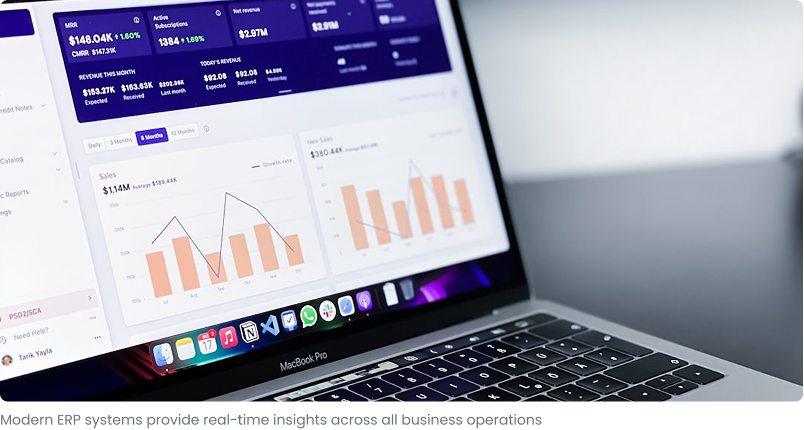Israr Ahmed
May 24, 2025 • 8 min read

Learn how an ERP Procurement Management Module optimizes purchasing, supplier management, and cost control for modern businesses.
In today's fast-moving business landscape, procurement isn't just about buying things—it's about buying smart. The ERP Procurement Module automates and integrates all activities involved in purchasing goods and services for a business. It acts as a bridge between internal departments (like finance, warehouse, and operations) and external vendors, offering visibility, control, and efficiency across the procurement lifecycle.
Rather than relying on emails, spreadsheets, or disconnected tools, this module centralizes purchasing data, workflows, approvals, and vendor management into one cohesive system.
Maintain a centralized supplier database with contact info, pricing, ratings, and contract history. This helps in selecting reliable vendors and tracking performance over time.
Benefits:
Departments can raise requests for items or services, which go through pre-defined approval chains. This avoids unnecessary purchases and ensures budget control.
Benefits:
Send RFQs to multiple suppliers directly from the system, compare quotes, and convert selected ones into purchase orders with a click.
Benefits:
Create, approve, and dispatch purchase orders automatically. Track the status of every PO—from creation to closure.
Benefits:
Log the receipt of items, match them with POs, and record inspection results. Ensure you're only paying for what you actually received and accepted.
Benefits:
Match invoices with POs and goods receipts for verification before payment approval. Reduce duplicate or incorrect payments.
Benefits:
Track stock levels in real time and trigger purchase orders when inventory hits minimum thresholds. Prevent overstock and avoid stockouts.
Benefits:
Store supplier contracts, rate agreements, and SLAs in one place with renewal reminders and version tracking.
Benefits:
Gain insights into spend trends, supplier performance, pricing, and delays. Use real-time data to negotiate better deals and cut costs.
Benefits:
| Benefit | Description |
|---|---|
| Cost Control | Avoid over-purchasing, duplicate orders, and pricing errors. Real-time analytics highlight opportunities to save. |
| Supplier Transparency | Track supplier performance, lead times, quality metrics, and compliance to choose the right partners every time. |
| Process Efficiency | Automate manual tasks like PO creation, invoice matching, and payment scheduling. Free up your team for strategic work. |
| Enhanced Collaboration | Seamless communication between procurement, finance, inventory, and operations—all within one platform. |
| Audit Readiness & Compliance | Maintain detailed records of all transactions, approvals, and supplier communications. Stay audit-ready and compliant. |
Without ERP, organizations face numerous procurement challenges that can significantly impact operational efficiency and cost control:
This module benefits businesses of all sizes and industries—but especially those with high-volume purchasing needs, large supplier networks, centralized operations, strict budget controls, and a need for traceability and compliance.
Procurement is a strategic business function, driver of cost savings, risk management, and supplier innovation. The ERP Procurement Management Module empowers businesses to bring visibility, control, and automation to every step of their purchasing process.
Whether you're growing fast or trying to optimize existing workflows, this module becomes a game-changer. With everything connected—supplier data, stock levels, approvals, invoices, and budgets—your organization can make better decisions, faster.
If you're still handling purchasing through disconnected spreadsheets or outdated systems, it may be time to let your ERP handle it intelligently.
Israr Ahmed
ERP Systems Specialist at SA Systems
Israr specializes in ERP implementations and procurement optimization strategies for modern enterprises.
 ERP
ERPMarch 15, 2025
 ERP
ERPFebruary 28, 2025
.png) ERP
ERPJanuary 20, 2025
.png) Real Estate
Real EstateDecember 10, 2024